11 Best Herbal Tinctures For Heartburn
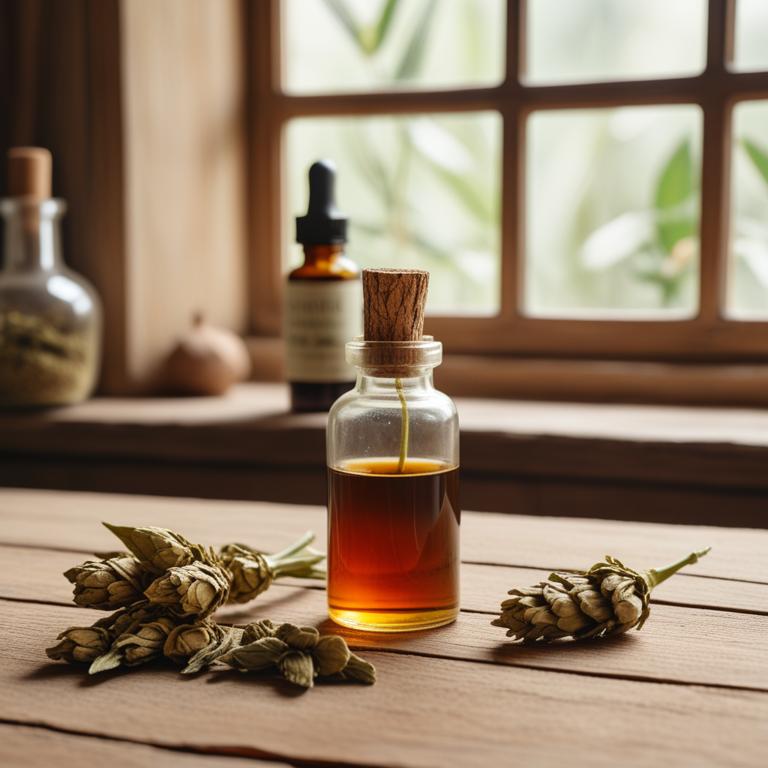
Herbal tinctures for Heartburn are liquid extracts made from plants that have been traditionally used to alleviate symptoms of heartburn and acid reflux.
These tinctures offer numerous benefits, including natural relief from heartburn symptoms, improved digestion, and reduced inflammation in the esophagus.
Examples of herbal tinctures commonly used to treat heartburn include dandelion root, which helps to stimulate digestion and relieve bloating, ginger, which has anti-inflammatory properties that can reduce inflammation in the esophagus, chamomile, which can help to soothe and calm the digestive system, and slippery elm, which forms a protective barrier in the stomach and esophagus to prevent acid reflux.
Additionally, other herbal tinctures such as peppermint, licorice root, and meadowsweet have also been used to treat heartburn due to their ability to relax the muscles in the digestive tract and reduce inflammation.
According to "Journal of alternative and complementary medicine (New York, N.Y.)", tinctures for heartburn, specifically those containing Myrtus communis and Cydonia oblonga, have shown marked reduction in GERD symptoms comparable to omeprazole.
Below there's a list of the 11 best herbal tinctures for heartburn.
- 1. Zingiber officinale tinctures
- 2. Glycyrrhiza glabra tinctures
- 3. Cinchona officinalis tinctures
- 4. Zanthoxylum bungeanum tinctures
- 5. Foeniculum vulgare tinctures
- 6. Trifolium pratense tinctures
- 7. Vitex agnus-castus tinctures
- 8. Curcuma longa tinctures
- 9. Ginkgo biloba tinctures
- 10. Paeonia lactiflora tinctures
- 11. Cinnamomum verum tinctures
Also you may be interested in...
TODAY'S FREE BOUNDLE
Herb Drying Checklist + Herbal Tea Shopping List + Medicinal Herbs Flashcards
Enter you best email address below to receive this bundle (3 product valued $19.95) for FREE + exclusive access to The Aphotecary Letter.
$19.95 -> $0.00
1. Zingiber officinale tinctures

Zingiber officinale tinctures, derived from the rhizome of the ginger plant, offer a natural remedy for heartburn due to their anti-inflammatory and antispasmodic properties.
The bioactive constituents, such as gingerol and shogaol, help to reduce inflammation and relax the muscles in the esophagus, thereby alleviating the symptoms of heartburn.
By soothing the digestive tract and reducing acid reflux, Zingiber officinale tinctures provide relief from the burning sensation associated with heartburn, promoting a sense of comfort and well-being.
Regular use of Zingiber officinale tinctures has been shown to improve digestion, reduce symptoms of heartburn, and promote overall gut health, making it a valuable natural remedy for individuals suffering from this common ailment.
Related Study
According to "Open life sciences", Zingiber officinale tinctures for heartburn may have potential benefits due to the presence of phytochemicals such as phenolics, flavonoids, and saponins that may help alleviate pain and discomfort associated with digestive issues.
2. Glycyrrhiza glabra tinctures

Glycyrrhiza glabra tinctures, derived from the root of the licorice plant, are a popular herbal remedy for treating heartburn and associated gastrointestinal issues.
The antacid properties of this herbal preparation help to neutralize stomach acid, providing quick relief from burning sensations in the chest and esophagus.
Glycyrrhiza glabra tinctures contain bioactive constituents such as glycyrrhizin, flavonoids, and phenolic acids, which collectively contribute to their anti-inflammatory and protective effects on the mucous membranes of the digestive tract.
By soothing and protecting the digestive lining, Glycyrrhiza glabra tinctures offer a natural and effective solution for managing heartburn symptoms, promoting digestive comfort, and reducing the risk of complications associated with prolonged exposure to stomach acid.
3. Cinchona officinalis tinctures

Cinchona officinalis tinctures have been traditionally used to treat heartburn due to their antacid and anti-inflammatory properties, which help to neutralize stomach acid and soothe the esophagus and stomach lining.
The herbal preparation contains bioactive constituents such as quinoline alkaloids, including quinine and quinidine, which have been shown to relax the lower esophageal sphincter and reduce acid reflux.
By reducing inflammation and relaxing the muscles in the esophagus and stomach, Cinchona officinalis tinctures can help to alleviate heartburn symptoms and promote healing.
The benefits of using Cinchona officinalis tinctures to treat heartburn include natural and non-habit-forming relief, reduced risk of side effects, and the ability to address underlying digestive issues.
4. Zanthoxylum bungeanum tinctures
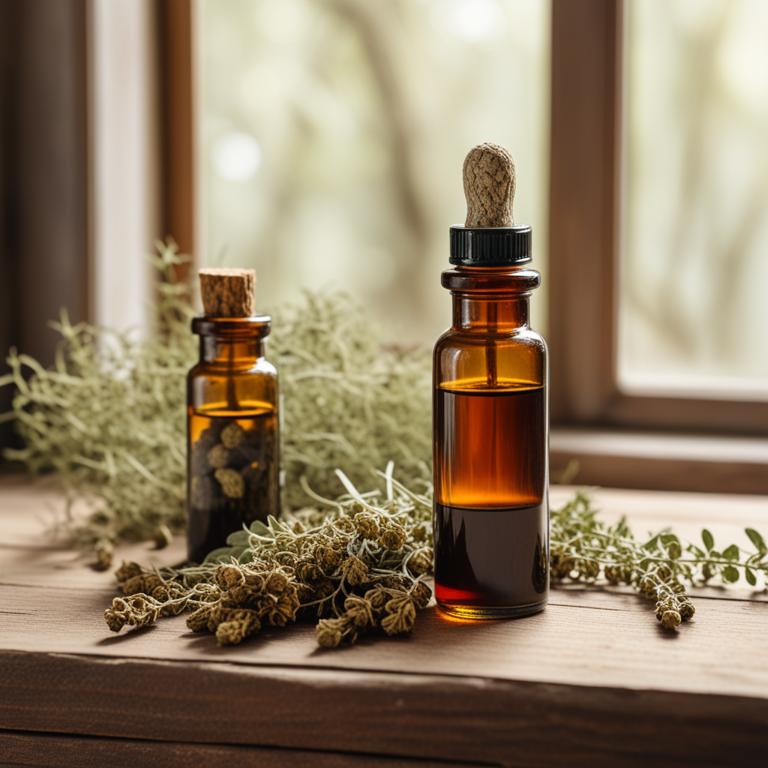
Zanthoxylum bungeanum tinctures are a herbal preparation derived from the Chinese prickly ash plant, traditionally used to treat heartburn and other gastrointestinal issues.
The properties of this herbal preparation help to neutralize stomach acid and alleviate digestive discomfort, making it an effective remedy for heartburn sufferers.
The bioactive constituents of Zanthoxylum bungeanum tinctures, including alkaloids, flavonoids, and phenolic acids, possess anti-inflammatory and antioxidant properties that help to soothe the digestive tract and reduce inflammation, thereby providing relief from heartburn symptoms.
The benefits of using Zanthoxylum bungeanum tinctures to treat heartburn include improved digestion, reduced acid reflux, and enhanced overall gut health, making it a popular natural remedy for heartburn sufferers.
5. Foeniculum vulgare tinctures
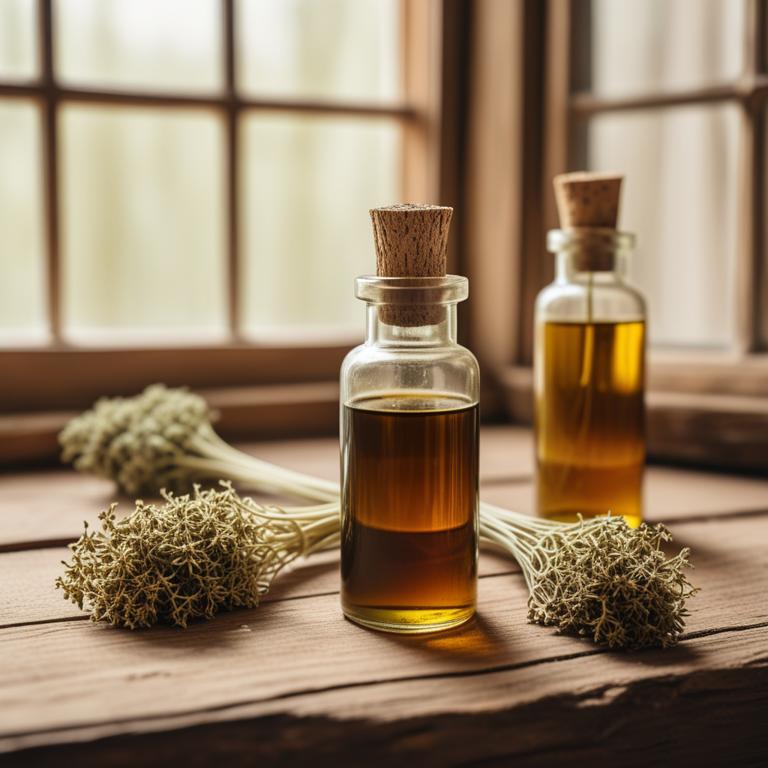
Foeniculum vulgare tinctures are a popular herbal remedy used to treat heartburn and its associated symptoms.
The properties of this herbal preparation help to soothe and calm the digestive system, reducing inflammation and alleviating discomfort.
The bioactive constituents, such as volatile oils (mainly anethole) and flavonoids, play a crucial role in treating heartburn by relaxing the lower esophageal sphincter and reducing acid production in the stomach.
Regular use of Foeniculum vulgare tinctures has been shown to provide long-term benefits, including reduced frequency and severity of heartburn episodes, improved digestion, and a overall sense of well-being.
Related Study
According to "Oxidative medicine and cellular longevity", Foeniculum vulgare tinctures for heartburn have been found to have antispasmodic activities which may help alleviate symptoms of gastrointestinal diseases, including heartburn, due to the presence of biologically active chemical constituents.
6. Trifolium pratense tinctures
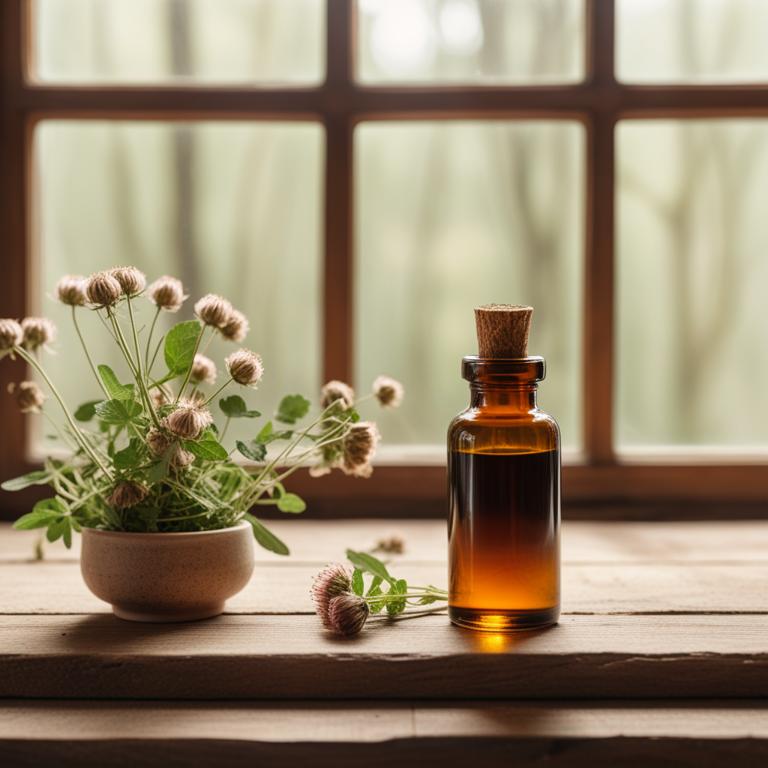
Trifolium pratense tinctures, derived from the common red clover, have been used to treat heartburn due to its anti-inflammatory and antacid properties.
This herbal preparation helps to treat heartburn by reducing inflammation in the esophagus and decreasing the production of stomach acid, providing relief from the burning sensation.
The bioactive constituents of Trifolium pratense tinctures, including isoflavones and flavonoids, contribute to its therapeutic effects by inhibiting the growth of bacteria that can cause heartburn and improving the integrity of the esophageal lining.
The benefits of using Trifolium pratense tinctures to treat heartburn include reduced symptoms, improved digestion, and a decreased risk of complications associated with chronic heartburn.
7. Vitex agnus-castus tinctures
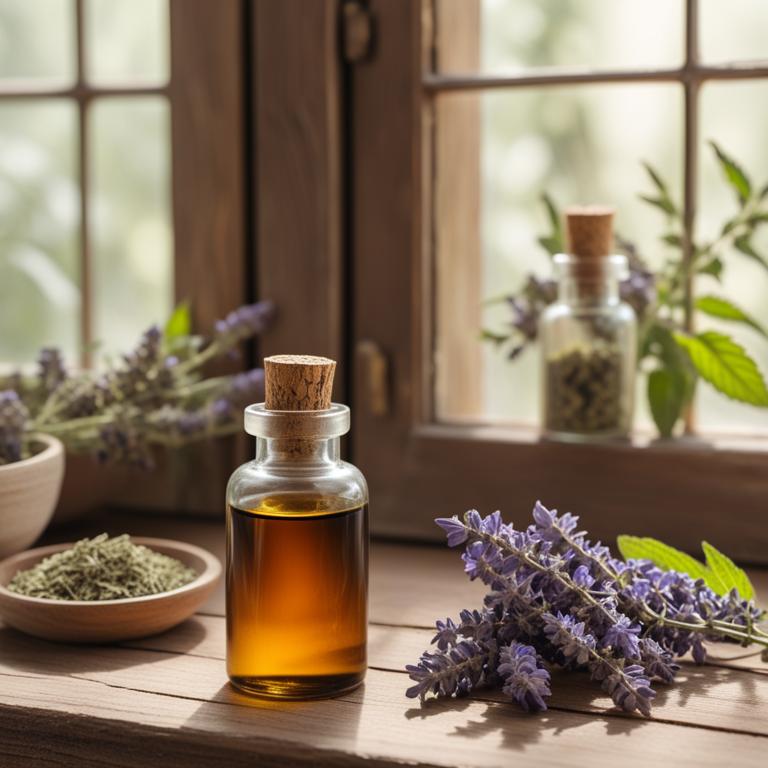
Vitex agnus-castus tinctures have been traditionally used to treat heartburn and other gastrointestinal issues due to their anti-inflammatory and antispasmodic properties.
These properties help to soothe the digestive tract, reduce inflammation, and relax the muscles in the esophagus, thereby alleviating heartburn symptoms.
The bioactive constituents of Vitex agnus-castus, including flavonoids, alkaloids, and saponins, work together to reduce acid production, improve digestion, and enhance gut health.
Regular use of Vitex agnus-castus tinctures can provide relief from heartburn, reduce symptoms of acid reflux, and promote overall digestive well-being.
8. Curcuma longa tinctures

Curcuma longa tinctures have been traditionally used to treat heartburn due to their anti-inflammatory and carminative properties, which help to soothe the digestive system and reduce inflammation in the esophagus.
The bioactive constituents, including curcuminoids and gingerol, in Curcuma longa tinctures work together to alleviate heartburn symptoms by reducing the production of stomach acid and promoting the healing of the esophageal mucosa.
By reducing inflammation and improving digestion, Curcuma longa tinctures provide relief from heartburn and other gastrointestinal issues, making them a popular natural remedy for this common ailment.
The benefits of using Curcuma longa tinctures to treat heartburn include reduced symptoms, improved digestion, and a lower risk of complications associated with prolonged heartburn.
Related Study
According to the study, Curcuma longa tinctures for heartburn may be beneficial due to the presence of curcumin, a compound found in Curcuma longa, which has potential anti-inflammatory and digestive system-enhancing properties.
9. Ginkgo biloba tinctures

Ginkgo biloba tinctures are a natural herbal preparation that can help to alleviate the symptoms of heartburn.
The anti-inflammatory and antioxidant properties of Ginkgo biloba tinctures, particularly flavonoids and terpenoids, help to soothe the digestive tract and reduce inflammation, making it easier to manage heartburn.
The bioactive constituents of Ginkgo biloba, including bilobalide and ginkgolides, have been shown to relax the smooth muscles in the esophagus, reducing acid reflux and alleviating heartburn symptoms.
By using Ginkgo biloba tinctures, individuals can experience relief from heartburn symptoms, improved digestion, and a reduced risk of complications associated with chronic acid reflux.
10. Paeonia lactiflora tinctures
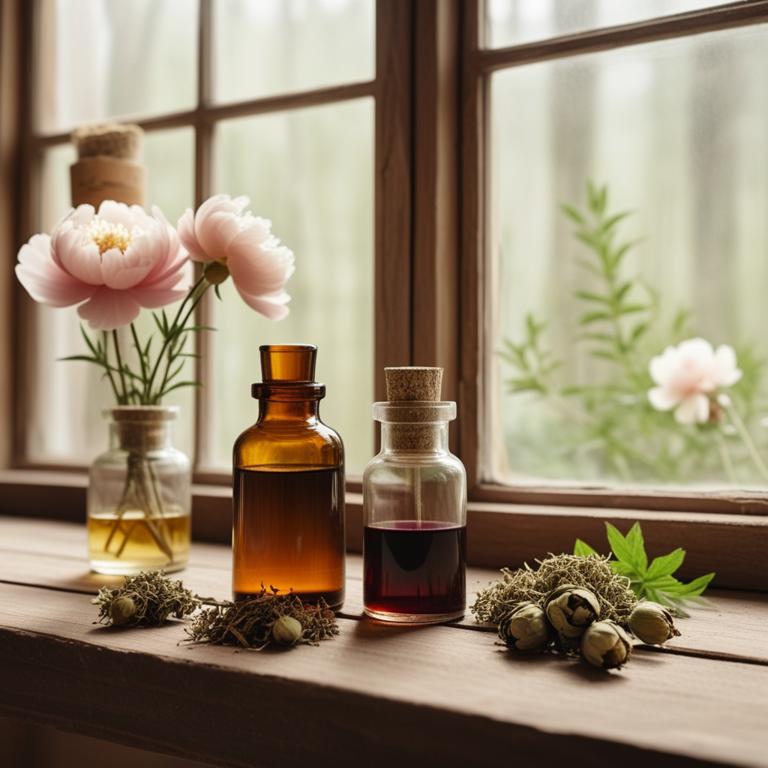
Paeonia lactiflora tinctures have been traditionally used to treat heartburn due to their soothing and anti-inflammatory properties, which help to calm the digestive tract and reduce inflammation.
The tinctures contain bioactive constituents such as paeoniflorin and paeonol, which have been shown to have a protective effect on the mucous membranes in the esophagus and stomach, thereby reducing heartburn symptoms.
By reducing inflammation and promoting healing, Paeonia lactiflora tinctures can provide quick relief from heartburn and prevent further irritation of the digestive tract.
The benefits of using Paeonia lactiflora tinctures for heartburn include reduced frequency and severity of symptoms, improved digestion, and a decrease in the risk of complications such as esophagitis.
11. Cinnamomum verum tinctures
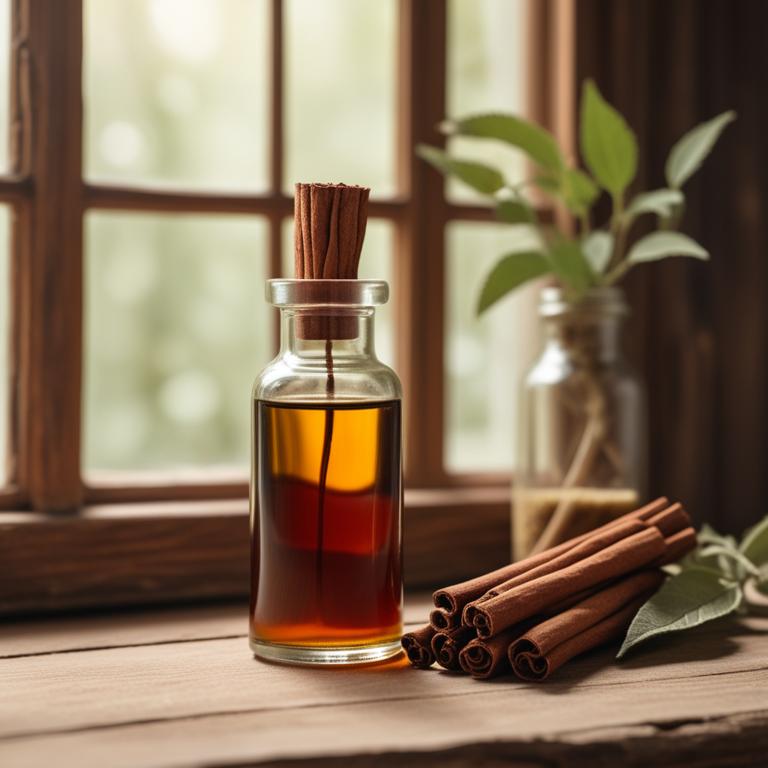
Cinnamomum verum tinctures are a natural herbal preparation used to treat heartburn, a common gastrointestinal disorder.
This tincture's anti-inflammatory and carminative properties help to alleviate heartburn symptoms by reducing inflammation in the esophagus and alleviating digestive discomfort.
The bioactive constituents, including cinnamaldehyde and eugenol, exhibit gastroprotective and antioxidant activities, which contribute to the tincture's effectiveness in treating heartburn.
Regular use of Cinnamomum verum tinctures has been associated with improved digestive health and reduced frequency of heartburn episodes.